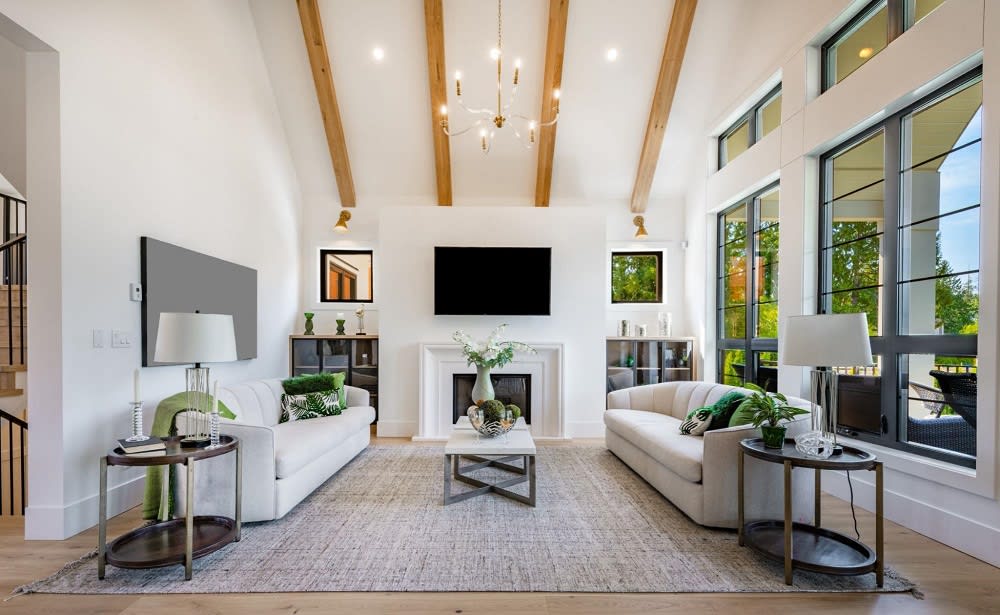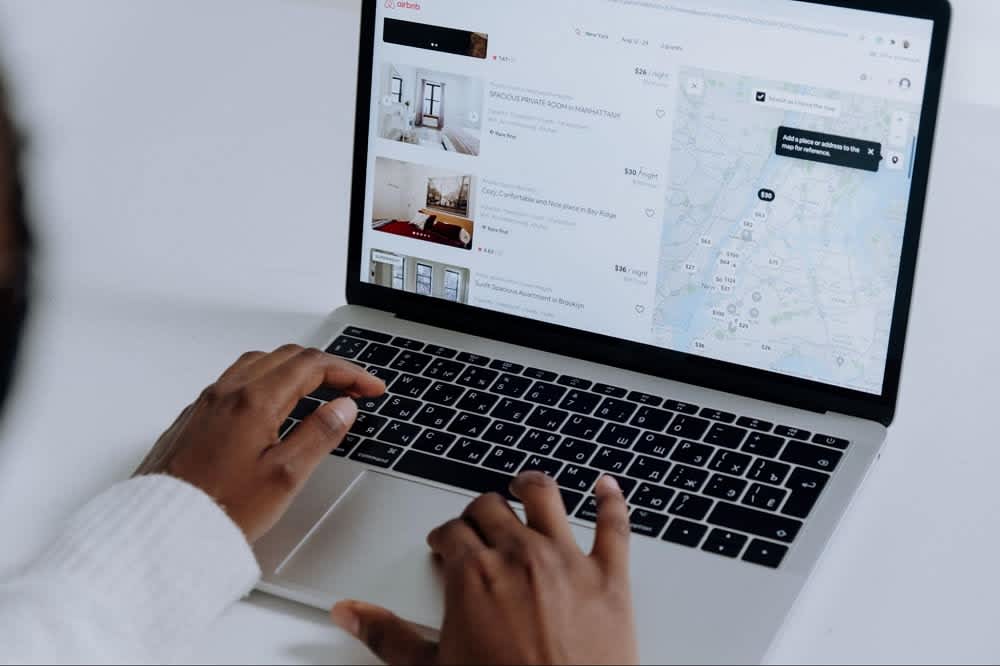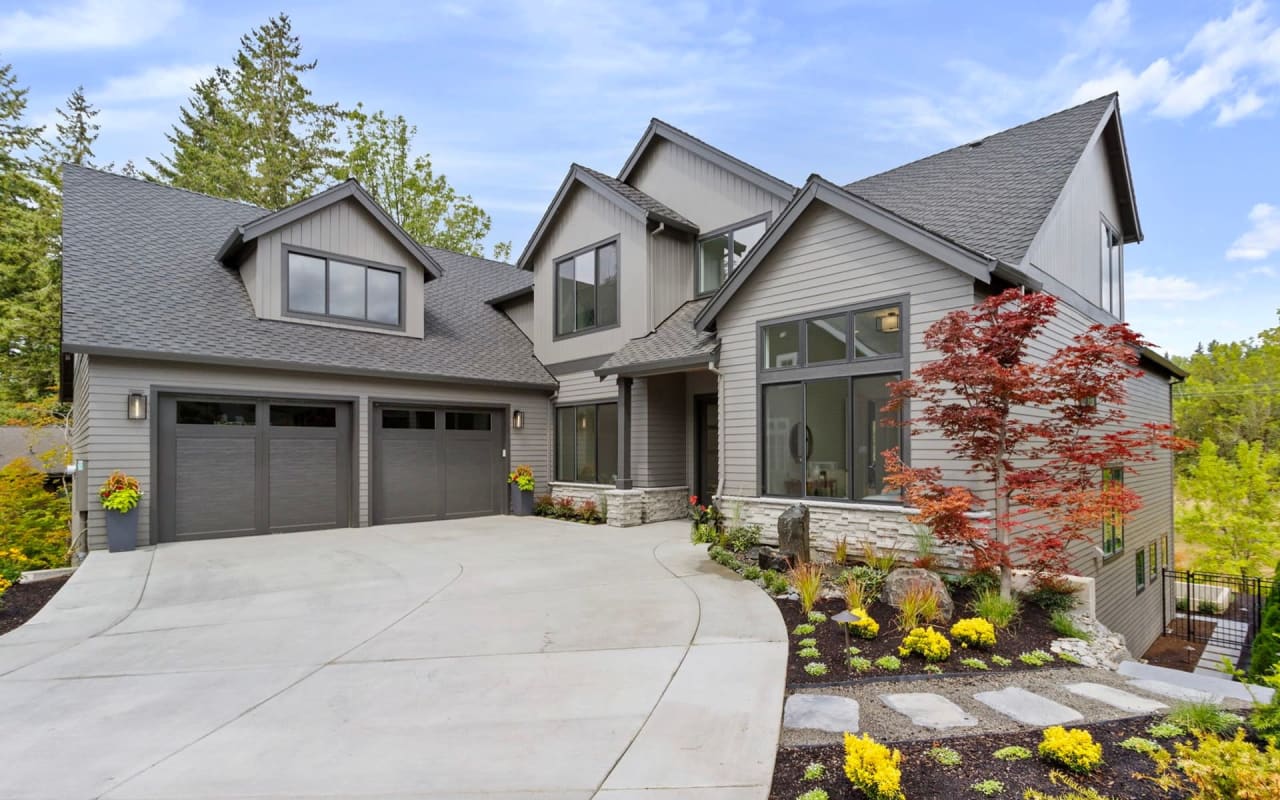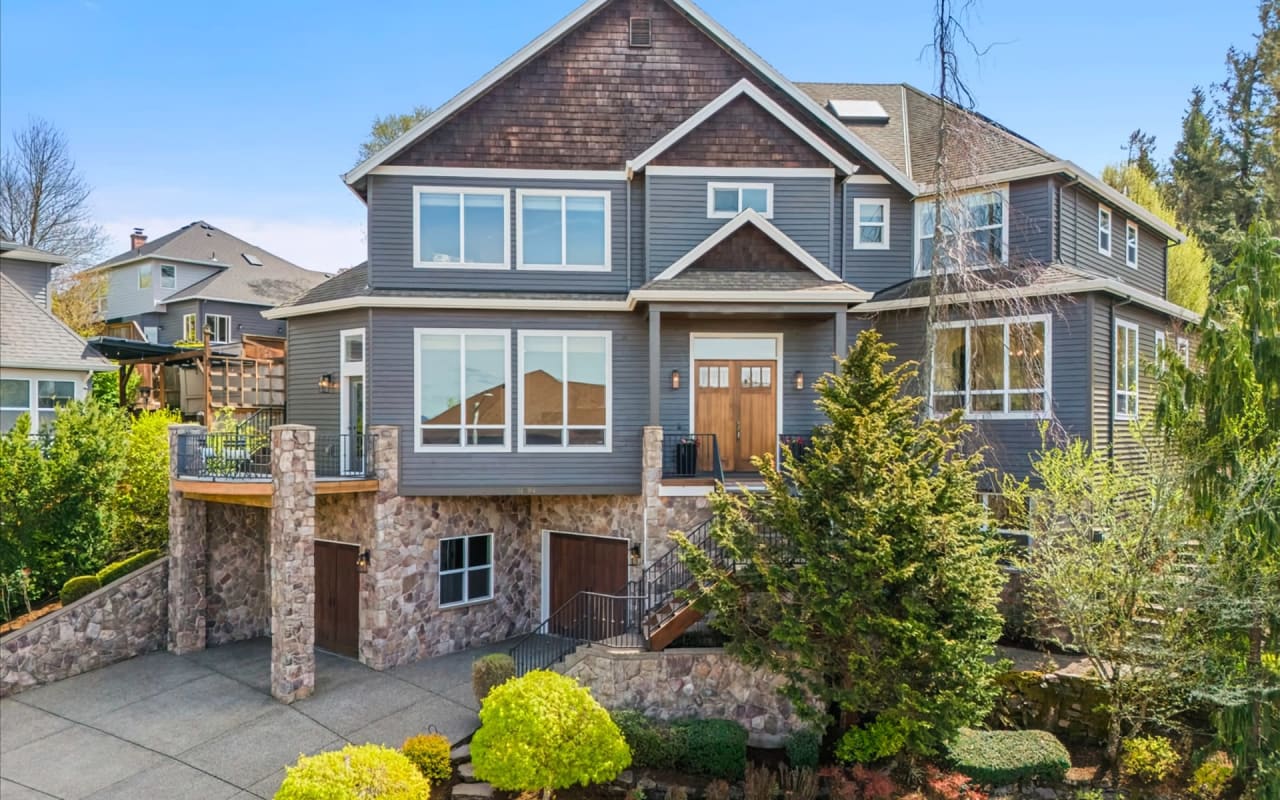Portland Real estate has been red hot the past few years. Despite the pandemic, the median sales price had a year-over-year increase of 16.13% in 2021, as reported by Norada Real Estate Investments. However, with rising inflation, mortgage rates are expected to increase in the coming months. Additionally, many economists predict that the US will enter a recession soon, which will likely put a damper on Portland's hot market, meaning sellers will have to put in more effort to fetch higher selling prices.
To alleviate this and stand out in a challenging market, sellers should stage their homes. Even if the Portland real estate market remains a seller's market, staging can still be an effective way to maximize selling price and reduce the time spent on the market.
What is home staging?

"Home staging" is a nebulous term. Essentially, it entails making a home look more desirable when put on the market. This can be as simple as doing a deep clean or going as far as renting furniture to make rooms look more attractive. It is recommended to do at least a little staging when preparing to sell a home. For more luxurious homes, hiring a professional stager can help sellers reach a higher selling price.
In the past, staging a home was pretty uncommon. Many sellers would simply list their homes as is without making any changes. However, recent data supports that staging is quite advantageous. Even a simple declutter and paint touch-up can help a great deal in building perceived value.
Staging isn't just limited to the home's interior. It may also include the external paint or landscape. Sprucing up the lawn and applying a fresh mulch bed can go a long way in making the home look more desirable. When prospective buyers view a home, the exterior will always provide their first impression. While most stagers focus solely on the interior, the exterior shouldn't be overlooked. Patching up bald spots on the lawn and securing loose gutters can help secure a positive first impression.
What is virtual staging?
With the explosion in the popularity of real estate apps like Redfin and Zillow, virtual staging has become a popular option for many sellers. While professional stagers tend to bring curated furniture to compliment each room, virtual staging takes a simpler approach. Instead of going through all the hassle of loading and transporting show furniture, virtual staging will just photoshop the furniture in bare rooms.
Granted, virtual staging is only effective for digital marketing. However, that may not be a problem for Portland buyers, especially for condos. According to Portland Monthly, 63% of home buyers made an offer on a home that they hadn't seen in person.
Virtual staging also provides a cost advantage over professional staging. Staging a home in Portland with rented furniture generally costs $2,500-$5,000 per month, all contingent on the number of rooms in a given home. Virtual staging is sustainably cheaper, typically costing around $60 per photo. This price typically includes professional photographs and the 3D rendering of added furniture.
Of course, virtual staging may become a relic of the pandemic. In today's market, it's reasonable to expect that more buyers will insist on visiting homes in person before making an offer. Virtual staging can backfire, as buyers will have inflated expectations. It's best to consult with your realtor to decide if virtual staging is the right move for your property.
Should you lean into the Portland culture when staging your home?
It's no secret that Portland has one of the quirkiest cultures in the United States. It may be tempting to incorporate this quirkiness in staging your home. A giant Timbers logo, a portrait of Fred Armisen and Carrie Brownstein, and a PDX carpet may sound like a good idea. However, the exact opposite is true.
A well-staged home should be as neutral as possible. Buyers want to see a home that they can customize to their own unique tastes, not one that already has an established style. The Oregon Realtors Association Twitter Account recommends relying on national trends when staging, as opposed to localized culture.
Trends such as curvy furniture, neutral paint, and lighter wood floors will be more attractive to a wide pool of buyers. One of the overall goals of staging is to allow buyers to make a personal connection with a home. That is best achieved by going for neutral stylings instead of localized flair.
How staging increases the perceived value of a home
Staging allows you to minimize the negatives of the home while also maximizing the positives. Neutral paint color will brighten just about any room, and upgrading window treatments can make a home look much newer.
Furniture will also be critical when enhancing a property's perceived value. Bare rooms simply look uninviting and can leave a negative impression. An empty room will look artificially enlarged, leading buyers to question if they need this much space or if the sellers may be desperate. Renting furniture specifically for staging can solve the problem of bare rooms.
A well-staged room will show buyers a view of what's possible. Instead of viewing an abandoned living area, buyers can see what it can look like if they were to make it their home. As most buyers won't be interior decorators, a well-staged room can show them what it would look like to live in this new home.
Staging optimizes your home for online shopping

For most home buyers, the research phase starts online. Whether professionally done or done yourself, staging can help make your home look better in online listings. A photogenic property will excite buyers to submit an offer.
While the pandemic's impact on real estate is likely over, some of the trends it created will remain in place — specifically, virtual tours. A virtual tour will allow buyers to get a quick glance at the home before deciding to visit it in person. Staging your home to look more photogenic will look much more attractive in virtual tours.
Impacts on selling time
Whether you're selling a Bethany single home or a Forest Heights townhouse, chances are you want it to sell as quickly as possible. Staging your home can dramatically reduce the days a property sits on the market.
According to research from the Real Estate Staging Association (RESA), unstaged homes would be on the market for an average of 143 days. Meanwhile, homes that were staged before listing would only be on the market for an average of 23 days. That's a difference of about four months.
Desperate buyers will turn down a house if it doesn't live up to its price tag. At an absolute minimum, houses should be deep cleaned, decluttered, and depersonalized prior to listing. A house that has had no staging whatsoever will cause buyers to become suspicious. If the seller didn't put in any effort prior to listing, buyers would think that the house hasn't been maintained.
How much does it cost to stage your home?
The cost of staging will vary a great deal from seller to seller. Additionally, staging can be simple or complex. Some sellers will do all the staging themselves; others will hire a professional. Professional stagers may offer a consultative service or full-service staging. The consultative approach entails a walk-through of the home, followed up with a report of recommendations.
In most cases, it is best to consult with your realtor to determine how much staging should be done. Market conditions can also influence how much staging should or shouldn't be done. At a minimum, most homes should be deep cleaned, and all personal items should be removed from sight.
How to get a positive ROI from staging your home

The ultimate goal of staging a home is to generate a positive return on investment. Spending money on staging doesn't make sense if you won’t earn it back. A general rule of thumb is to spend 1% of the estimated selling price on staging to generate a positive ROI. Of course, this may vary greatly from property to property and current market conditions.
Some homes should have new carpets and holes patched up before listing. This can easily push the staging budget over 1%, but can still be worthwhile. Conversely, a home that never had pets or kids may not need to spend as much money on staging.
The amount to spend on staging and actual steps to take on staging should be discussed with a professional realtor. That's where Dirk Hmura and the team can help. Dirk Hmura was born and raised in Portland and deeply understands the real estate market.
Whether you're looking for houses in Bethany or Cedar Mill townhomes, Dirk and the team have you covered. To learn more about the local real estate market, check out our blog. If you want to buy or sell in the Portland area, feel free to contact us anytime.




